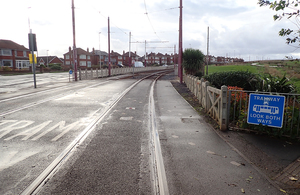In pursuit of balance: unlocking the power of data whilst preserving public trust
Since its foundation in 1948, the NHS has looked after the population of this country. In doing so, it has amassed comprehensive cradle-to-grave information about tens of millions of us, whatever our social and economic circumstances or ethnic origin. This store of confidential data is a national treasure – our shared national treasure – that must never be compromised or treated carelessly, as its collection is founded on our trust.
The value of our data will only be realised if it can be organised in such a way that the NHS is able to use it well to improve treatments, services and ultimately our health and care. Sealing this precious asset in a vault where it cannot be used would render it worthless. However, making the data available in ways that damage patients’ trust would be counterproductive. If people lose their trust in how the health and care system handles their confidential data things will fall apart, and plans for data use will not hold.
Welcome to the world of balanced judgment. The hunt is on for a way to unlock the treasure of our data without damaging our trust. These objectives are of equal value. As National Data Guardian, I have set my vision, mission and strategic objectives towards this end.
The importance of achieving the right balance is coming into sharper focus now, as NHS England begins asking companies to tender to provide a federated data platform. This ‘ecosystem of technologies and services’ will provide real-time, reliable insights to those making decisions about how care is planned and delivered.
I strongly agree with the aims and ambitions of NHS England’s federated data platform (FDP) programme. Improving timely, meaningful access to high-quality data, visualised in a way that supports more informed decision-making by those empowered to use it, is key to improving health and care access, outcomes, and experience for all. However, this data programme must avoid common pitfalls around trust and transparency that have frustrated previous initiatives in this area. More on that later.
Public trust can only be earned through a commitment to honesty and transparency. There must be no surprises for people about how their private information is being used. To help the programme to get it right, my team, panel of advisors and I have provided, and continue to provide, advice in several areas around these themes. I have made clear that NHS England needs to allow sufficient time to listen to patients and professionals and then adapt plans according to what it hears. I have advised that the programme must be transparent and always strive to provide clear, easy-to-understand explanations of the platform, what data it will use, how it will use it, the benefits of the programme, and, just as importantly, the risks. Being open about risks and their mitigations provides an opportunity to meaningfully engage the public and build confidence in the system. This information should be publicly available, easy to find, and accessible. The programme has subsequently assured me that it will be carrying out research with the public to determine what information people want and need about the programme. This will inform its communications and engagement plans, which it has committed to share with me for review.
I have advised the programme to develop comprehensive information governance guidance, clear governance frameworks and security measures for the platform. I expect that it will continue to engage with me on these matters. I have also counselled that the programme should remain mindful of the NHS’s core values, and how the track record and values demonstrated by any organisations procured to deliver on a large-scale data programme align with them. As NDG, my role is to provide advice and guidance. Ultimately, decisions around the FDP’s procurement rest with the Department of Health and Social Care and NHS England. To date, I’m pleased to say those running the programme have listened and responded thoughtfully to my advice.
Just as my predecessor, Dame Fiona Caldicott, sought to do with the care.data programme, I shall continue to stress the importance of public and professional confidence for the FDP programme’s success. And as a psychiatrist (like Dame Fiona), I’d also stress the importance of learning lessons from history to avoid repeating mistakes. The care.data programme failed when it could not provide satisfactory answers to a series of questions and tests set by Dame Fiona, including key ones around transparency and the clarity of policy and communications. I hope the NHS will keep this lesson in mind and engage with these critical themes from the outset, so that the FDP programme succeeds in inspiring confidence and support where care.data did not. In this time of crisis for the NHS, the programme’s work to support better health and care for all through the better use of our data is too important an ambition to fail.


